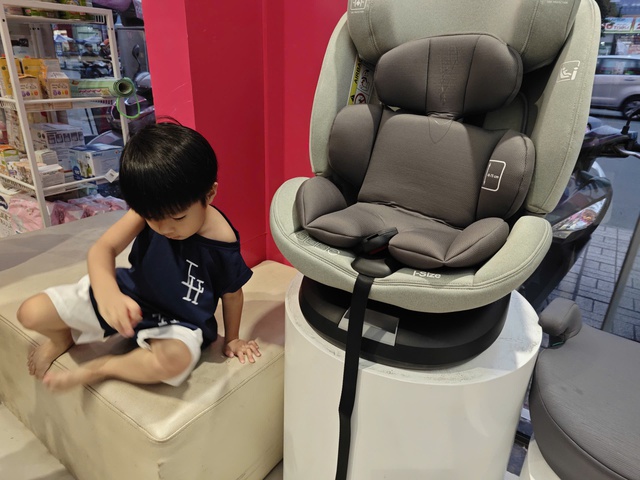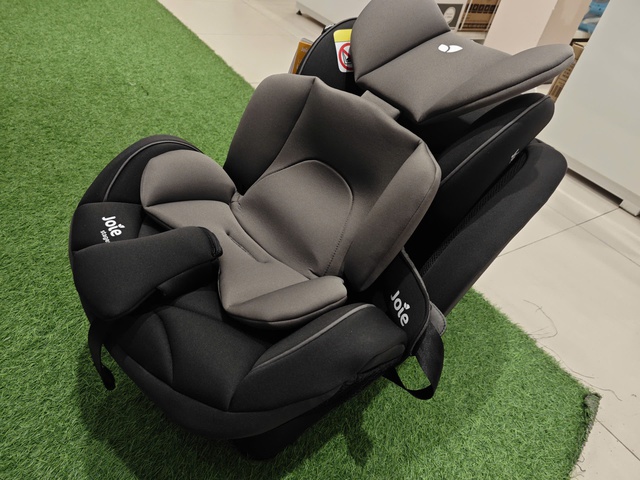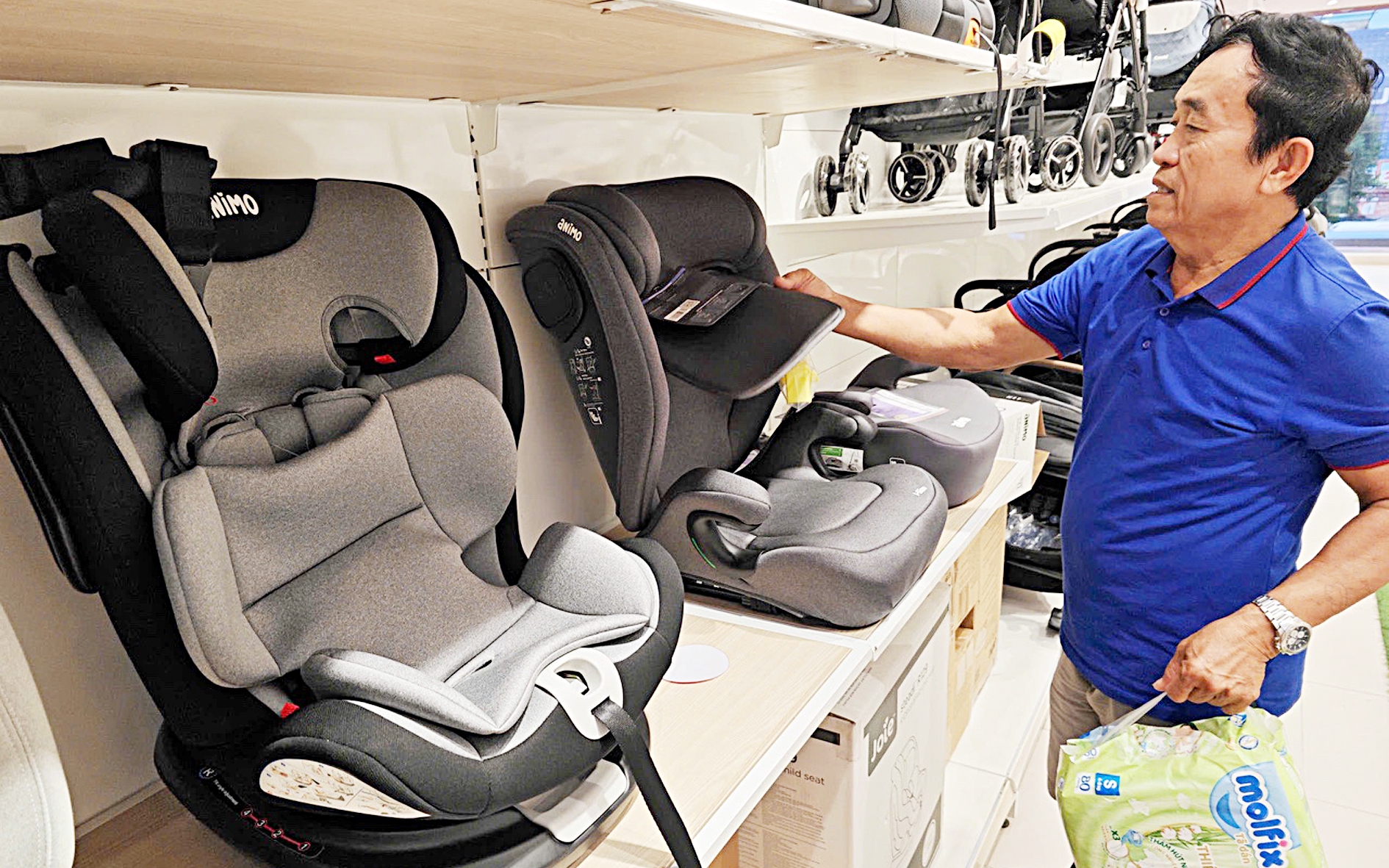
A child plays next to a child car seat on display at a store in Ho Chi Minh City. Photo: Cong Trung / Tuoi Tre
Searches and orders for child seats have risen since early November on major e-commerce platforms and at mother-and-baby chains.
The new traffic safety law, which makes the use of child seats compulsory in passenger cars, will take effect on January 1, 2026.
Retailers are pushing large promotions, with some products discounted by nearly half.
Listings on Shopee and Lazada show a mix of low-cost seats priced at a few hundred thousand dong and premium imports from Europe, Japan, and the United States. (VND100,000 = US$3.8)
But the surge in choice has also exposed uneven labeling and certification.
While some models cite the European ECE R44/04 or R129 standards, others provide only generic 'child safety seat' tags without technical details.
Parents interviewed by Tuoi Tre (Youth) newspaper said they struggled to distinguish between rotating seats, fixed seats, and booster models, and were unclear about the correct transition between seat types for children of different weights.
A salesperson at mother-and-baby chain Con Cung said mid-range models costing VND2–3 million ($76-114) draw the most interest, though premium brands can exceed VND20 million ($758).
Retailers recommend that buyers check their vehicle’s ISOFIX system before purchase and look for features such as side-impact protection and adjustable head support.

A child car seat is on display at a store in Ho Chi Minh City. Photo: Cong Trung / Tuoi Tre
The jump in consumer activity has not been matched by automakers which have kept marketing focused on end-of-year sales and tax incentives.
Industry officials say this reflects a longer-term trend: most models sold in Vietnam already include ISOFIX anchor points, largely because manufacturers have aligned with international safety standards.
A quick review of high-volume models such as the Toyota Vios, Hyundai Accent, Honda City, Mitsubishi Xpander, and VinFast VF 5 indicates that most variants produced from 2018 onward offer ISOFIX as standard equipment.
Nguyen Anh Linh, chief executive of Volvo Car Vietnam, said the company’s imported vehicles already comply with European rules and will not require technical adjustments when Vietnam’s new law takes effect.
Dao Cong Quyet of the Vietnam Automobile Manufacturers’ Association said consumer habits, not vehicle design, remain the main barrier to wider adoption.
“The technology has been in place for years,” he said.
“The question now is whether families will use it.”



Max: 1500 characters
There are no comments yet. Be the first to comment.